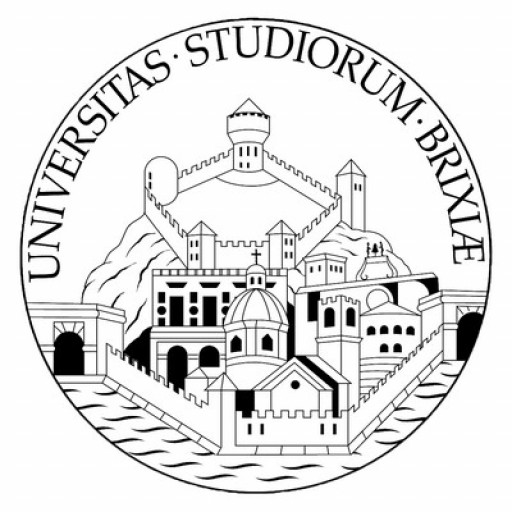Photos of university / #oxford_uni
Engineering Science encompasses a vast range of subjects, from micro-electronics to offshore oil platforms, and involves the application of creative reasoning, science, mathematics (and of course experience and common sense) to real problems.
The Department of Engineering Science at Oxford has a top-level quality assessment rating for teaching, and a world-class reputation for research. Because we believe that future engineering innovation will benefit from broad foundations as well as specialised knowledge, teaching is based on a unified course in Engineering Science, which integrates study of the subject across the traditional boundaries of engineering disciplines. Links between topics in apparently diverse fields of engineering provide well-structured fundamental understanding, and can be exploited to give efficient teaching.
The Engineering Science programme is a four-year course, leading to the degree of Master of Engineering. The first two years are devoted to topics which we believe all Engineering undergraduates should study. In the third and fourth years there is scope for specialisation into one of six branches of engineering: Biomedical, Chemical, Civil, Electrical, Information and Mechanical. Decisions about which of these will be your specialisation can be deferred until the third year. In the fourth year there may be opportunities to study abroad.
The course is currently accredited by the major engineering institutions in respect of the initial requirements for the designation of chartered engineer. Accreditation beyond 2016 is in progress.
Industrial experience is an extremely important adjunct to an academic engineering education, and under-graduates are strongly encouraged to obtain it. One way to do so is by being sponsored. Further information is generally available through your careers teacher, or from the engineering institutions.
If your sponsoring company wants you to spend a year with them before university, you will be asked to declare this at your interview and in your UCAS application.
ES Careers
The analytical skills, numeracy and practicality developed by Engineering Science graduates are sought after in both industry and commerce. Many continue into a career as a professional engineer while others enter business areas such as management consultancy or finance. Around 30% go on to further study following their degree.
Jonathan now works for a defence electronics firm called Thales Group as an acoustic engineer. He says: ‘The approaches to problem-solving I learned at Oxford have been directly applicable to the challenges I have faced in my career so far. The tutorial system has given me confidence in my skills, and the ability to communicate my opinions effectively.’
| 1st year | |
|
Courses
|
Assessment First University examinations: |
| 2nd year | |
|
Courses
|
Assessment Final University examinations, Part A: |
| 3rd year | |
|
Courses
|
Assessment Final University examinations, Part B: |
| 4th year | |
|
Research A major project, plus six specialist courses chosen from within the areas of:
|
Assessment Final University examinations, Part C: |
- Attestat o Srednam Obrazovanii (Certificate of Secondary Education) would not be sufficient for candidates to make a competitive application. If your qualification is listed as being insufficient to make a competitive application to Oxford, then you will need to undertake further study if you wish to apply.You could take British A-levels (the British Council may know where you can take A-levels in your country), the International Baccalaureate (IB), or any other qualifications listed as acceptable on this page. The first year of a bachelor's degree from another university could also be an acceptable alternative.
- IELTS: overall score of 7.0 (with at least 7.0 in each of the four components)
- TOEFL (paper-based): overall score of 600 with a Test of Written English score of 5.5
- TOEFL (internet-based): overall score of 110 with component scores of at least: Listening 22, Reading 24, Speaking 25, and Writing 24.
- Cambridge English: Advanced, also known as the Certificate of Advanced English (CAE): grade A if taken before January 2015, or a score of at least 185.
- Cambridge English: Proficiency, also known as the Certificate of Proficiency in English (CPE): grade B if taken before January 2015, or a score of at least 185.
- English Language GCSE, or O-level: grade B (for IGCSE, please see below)
- International Baccalaureate Standard Level (SL): score of 5 in English (as Language A or B)
- European Baccalaureate: score of 70% in English.
Want to improve your English level for admission?
Prepare for the program requirements with English Online by the British Council.
- ✔️ Flexible study schedule
- ✔️ Experienced teachers
- ✔️ Certificate upon completion
📘 Recommended for students with an IELTS level of 6.0 or below.
Scholarships
Hill Foundation Scholarship
Russian nationals wishing to study for a second undergraduate degree. Application deadline: 12 noon (UK time) on 15 February 2017
Palgrave Brown Scholarship
Students must be ordinarily resident in and/or educated in the following countries:
Albania; Armenia; Azerbaijan; Belarus; Bosnia and Herzegovina; Bulgaria; Croatia; Czech Republic; Estonia; Georgia; Hungary; Kazakhstan; Kyrgyz Rep.; Latvia; Lithuania; Macedonia; Moldova; Montenegro; Poland; Romania; Russia; Serbia; Slovakia; Slovenia; Tajikistan; Turkmenistan; Ukraine; Uzbekistan. Application deadline: 12 noon (UK time) on 15 February 2017











